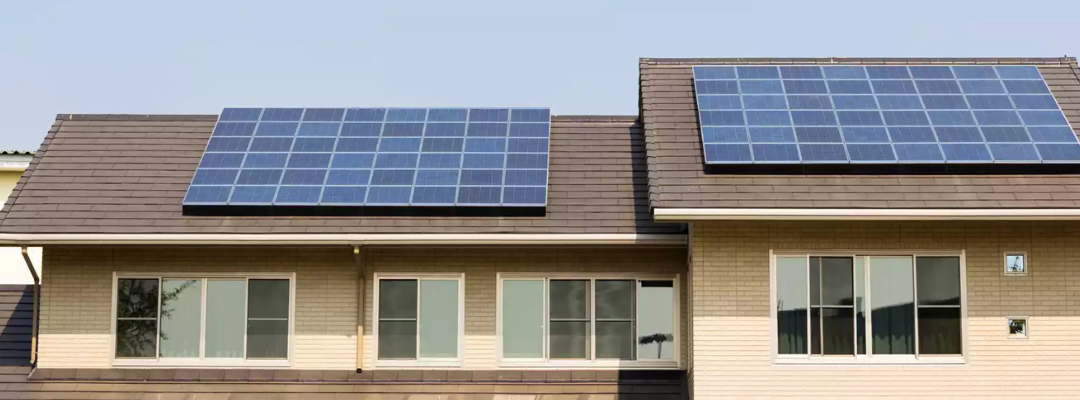When planning a solar PV system for remote living in homes or commercial spaces, it’s essential to consider several factors to ensure reliable and sustainable power. Here’s what you need to know:
1. Energy Requirements Assessment
- Calculate Your Power Needs: Start by determining your total daily energy consumption. List all the appliances and devices you’ll use, their wattage, and the estimated number of hours each will run. This helps you size your solar PV system appropriately.
- Plan for Peak Usage: Consider peak times of energy usage and ensure your system can handle higher loads during those periods.
2. System Components
Solar Panels
Select high-efficiency solar panels with a good performance warranty. For remote or off-grid solar installations, space and sunlight availability are critical—opt for monocrystalline panels for better performance in limited sunlight.
Battery Storage
Batteries are vital for storing excess energy for use at night or during cloudy days. Lithium-ion batteries offer higher efficiency and longer lifespan, while lead-acid batteries are more budget-friendly but require more maintenance.
Charge Controller
This device regulates the current and voltage from the panels to the batteries, preventing overcharging and prolonging battery life.
Inverter
A pure sine wave inverter is recommended for converting DC (from solar panels and batteries) to AC (used by most household appliances). Choose an inverter rated higher than your peak load.
3. Off-Grid System Sizing and Capacity Planning
Solar Array Sizing :
Your solar array must generate enough energy to meet daily demand and fully charge batteries. Include a buffer for inefficiencies and poor weather days.
Battery Bank Sizing :
For a residential off grid solar system, plan for 2–3 days of backup power for uninterrupted supply. This is crucial in areas with inconsistent sunlight or during monsoons and winters.
4. Location, Sunlight Access, and Orientation
Site Location and Sun Exposure :
Install solar panels in a location that gets unobstructed sunlight throughout the day. Trim trees or reposition panels if necessary.
Panel Orientation and Tilt Angle :
Adjust the tilt and orientation based on your geographic location. Typically, panels should face true south (in the northern hemisphere) and be tilted at an angle close to your latitude.
5. Maintenance and Monitoring of Off-Grid Systems
Panel Cleaning :
Dust, snow, or debris can reduce panel efficiency by up to 30%. Regular cleaning is especially important in rural or dusty environments.
Battery Maintenance :
Depending on the type, check for corrosion, electrolyte levels (in lead-acid), or monitor charge levels (in lithium-ion).
Remote Monitoring Systems :
Many modern off-grid systems offer smart monitoring apps that allow you to track energy production, battery levels, and system health from anywhere.
6. Off-Grid Solar Costs and Budget Planning
Initial Setup Costs :
Off-grid systems are more expensive upfront due to batteries, inverters, and backup generators. However, they eliminate monthly utility bills.
Long-Term Financial Benefits :
Enjoy energy independence and cost savings over time. Your investment pays off in 5–10 years, depending on system size and usage.
Government Incentives and Subsidies :
Check for solar subsidies, grants, or tax benefits available in your region. Many governments support renewable energy adoption through incentives.
7. Sustainability and Backup Power
- Energy Efficiency: In remote living situations, energy efficiency is crucial. Use energy-efficient appliances and lighting to reduce overall power consumption.
- Backup Power: Always have a backup plan, such as a generator, in case of extended periods without sunlight or if the solar system underperforms.
8. Seasonal and Weather Considerations
Account for Seasonal Variability :
Solar generation is lower in winter or during rainy seasons. Design your system to handle low-sunlight days with sufficient storage.
Extreme Weather Protection :
Choose panels and equipment rated for wind, snow, and rain resistance. Consider protective shelters or reinforced mounts for harsh climates.
9. Permits, Regulations, and Legal Compliance
Understand Local Laws :
Verify zoning regulations, building permits, and environmental codes. Some locations may require inspection or approval for off-grid systems.
Water Pumps and Heating Loads :
If you’re using solar for water pumps or space heating, account for the additional load in your power calculations and system sizing.
10. Energy Independence
Live Off the Grid with Confidence :
Off-grid solar ensures complete energy autonomy, freeing you from rising electricity costs and grid outages.
Eco-Friendly Living :
Reduce your carbon footprint and embrace sustainable, green energy with a clean, renewable power source.
By understanding these aspects and properly designing your off-grid solar PV system, you can achieve a self-sufficient and reliable power source for remote living.

